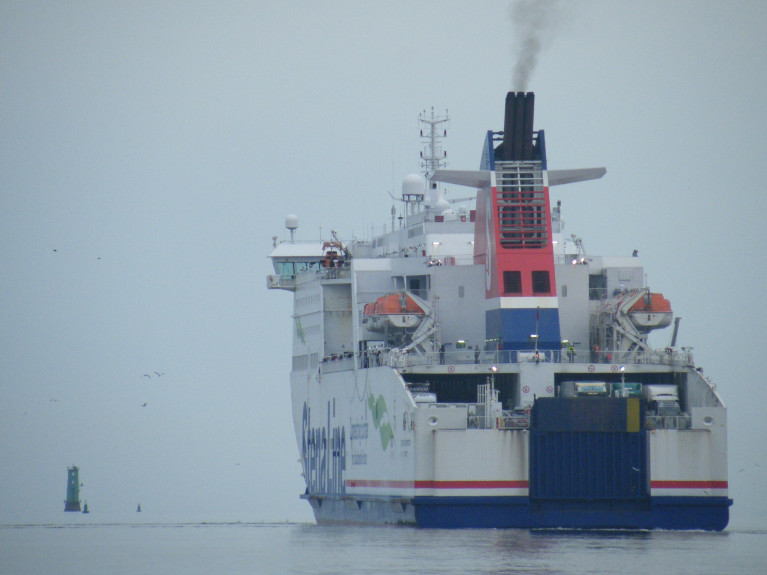Displaying items by tag: A Superfast First
The recent introduction of Stena Estrid, the brand new ferry on Stena Line's Dublin-Holyhead led to the direct replacement of a ferry that from today will temporary serve on the operator's Ireland-France route, writes Jehan Ashmore.
Stena Superfast X with notable colourful interiors, had sailed on the Irish Sea route since making a debut in early 2015. The then newcomer joined Stena Adventurer (which remains in service) is to sail tonight on the Rosslare-Cherbourg route. This will be the first 'Superfast' series ferry to serve on the route and will enable Stena Horizon to go-off service to undergo a scheduled annual maintenance dry-docking in what is a quiet time of the year.
According to the operator's freight website, Stena Superfast is scheduled to maintain the Ireland-France service till early next month, with a final sailing arriving in Rosslare on 3rd February, a Monday. On such days a routine 'lay-over' period of the ferry takes place and consequently no sailings return on those days to France.
The covering of crossings carried out by the 'Superfast' also easily represents the largest Stena ship ever to serve on the continental route. The overnight service had been acquired by the Swedish ferry giant from Irish based Celtic Link Ferries (see final voyage) as Afloat reported in 2014.
Returning to Stena Superfast X, which since its departure from Irish Sea duties was soon actively deployed onto the operators's Belfast-Cairnryan route where sisters Stena Superfast VII/VIII took it in turns for scheduled inspections at Harland & Wolff's Belfast Dry Dock.
The pair recently returned to the North Channel service linking the North and Scotland, however Stena Superfast X did remain in Belfast Harbour until yesterday following a drydocking too at the BDD facility. Albeit unlike fleetmate sisters, the call to the dry-dock was brief.
A repositioning voyage from Belfast was today tracked by Afloat which saw Stena Superfast arrive this morning to Rosslare Europort. Also Stena Horizon completed a final inward bound crossing from France prior to the forthcoming drydocking at A&P Falmouth, Cornwall. In addition this evening saw Stena Europe (see life-extending refit) arrive from the Welsh port of Fishguard.
The trio of ferries at time of writing remain berthed in Rosslare before the expected arrival later this evening of rival operator, Irish Ferries whose Isle of Inishmore competes also on the Welsh run but using Pembroke Dock. This ferry is due to arrive this evening at 18.46.
As for the Stena Superfast's inaugural sailing later tonight, this is scheduled for a departure from the Wexford ferryport at 21.30. An arrival in Normandy tomorrow afternoon is set for 16.00.
As for the future of the ferry, Afloat has noted that the ship is listed available for charter as part of the Stena RoRo fleet, this consists of 3 RoRo's and 9 Ropax vessels.
























































